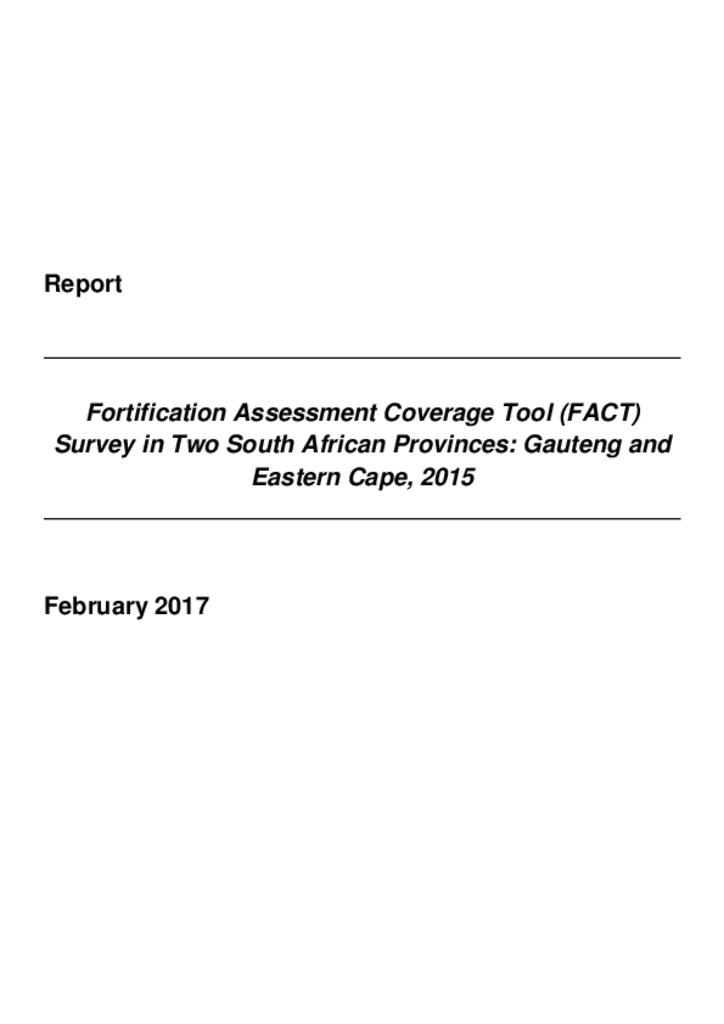In South Africa, national fortification of salt with iodine, and wheat bread flour and maize meal with multiple micronutrients has been mandated by law since 1998 and 2003, respectively. Currently, there is a lack of current information available on how well these programmes are performing, household coverage and intake of these fortified foods, and if vulnerable populations are being reached.
In 2015, the Global Alliance for Improved Nutrition (GAIN), in collaboration with the United States Centers for Disease Control and Prevention (CDC) and the University of the Western Cape conducted a Fortification Assessment Coverage Toolkit (FACT) survey in two provinces: Gauteng and the Eastern Cape. The purpose of the survey was to assess the household coverage and potential contribution of fortified foods to the micronutrient intake among women of reproductive age.
The survey was designed to be representative at the province level. Data were collected on: household demographics and socioeconomic status; education levels within the household; housing conditions; recent infant and child mortality; water, sanitation, and hygiene (WASH) practices; food security; women’s dietary diversity; and coverage and consumption of fortified wheat bread flour, maize flour, and salt. Food samples of wheat bread flour, maize meal, wheat bread, and salt were collected from participating households and analysed quantitatively to determine fortification levels and adherence with national standards.
The results revealed that the potential for important contributions to nutrient intakes from consumption of fortified wheat bread, maize meal, and salt is high in both provinces; however, there are still improvements to be made to ensure the adequacy of fortification levels.
